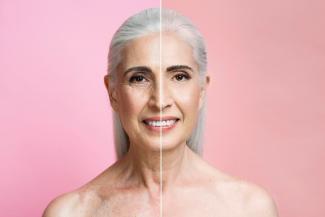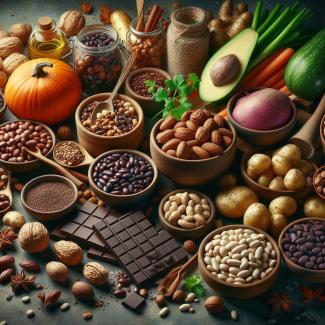
Sagging skin collagen is a type of collagen that plays a crucial role in maintaining healthy skin, hair, nails, and joints. Collagen is a protein that forms the fundamental structure of connective tissues in the body, including the skin. As you age, the natural production of collagen in the body decreases, which can lead to skin aging, loss of elasticity, wrinkles, stretch marks, and other skin issues.
Sagging skin collagen is a special product that contains hydrolyzed collagen. Hydrolyzation is a process in which collagen is broken down into smaller peptides, which makes it easier for the body to absorb and use. This means that sagging skin collagen can supplement the body's natural collagen production, which can contribute to improving the health and appearance of the skin.
The connection between digestion and sagging skin collagen is indirect. Although collagen is used to enhance the appearance of the skin, there is no direct link between digestion and collagen. However, digestion is important for the absorption of nutrients, including collagen, into the body.
When you consume hydrolyzed collagen, the body digests and breaks it down into smaller peptides. These peptides are then absorbed into the bloodstream and can be distributed throughout the body, including the skin, where they may contribute to improving its structure. Therefore, healthy digestion is important because it can affect the efficiency of collagen absorption.
Furthermore, some people believe that consuming collagen may benefit digestion by helping to repair and strengthen the gastrointestinal lining. However, research on this topic is still ongoing, and there is not enough evidence to firmly confirm these effects.
In any case, it is advisable to consult with your doctor or nutritionist before starting any dietary supplement, including collagen, to ensure that it is appropriate for your individual needs and health condition.






